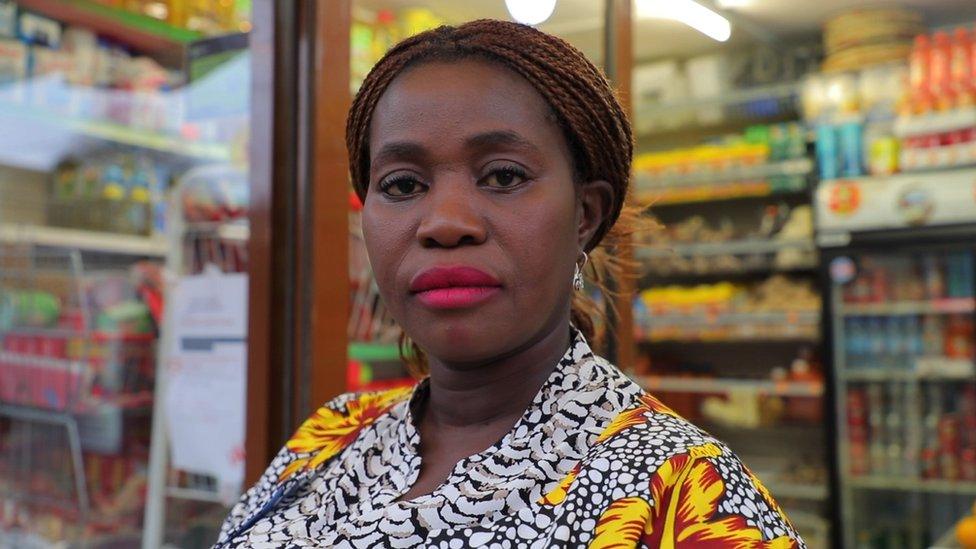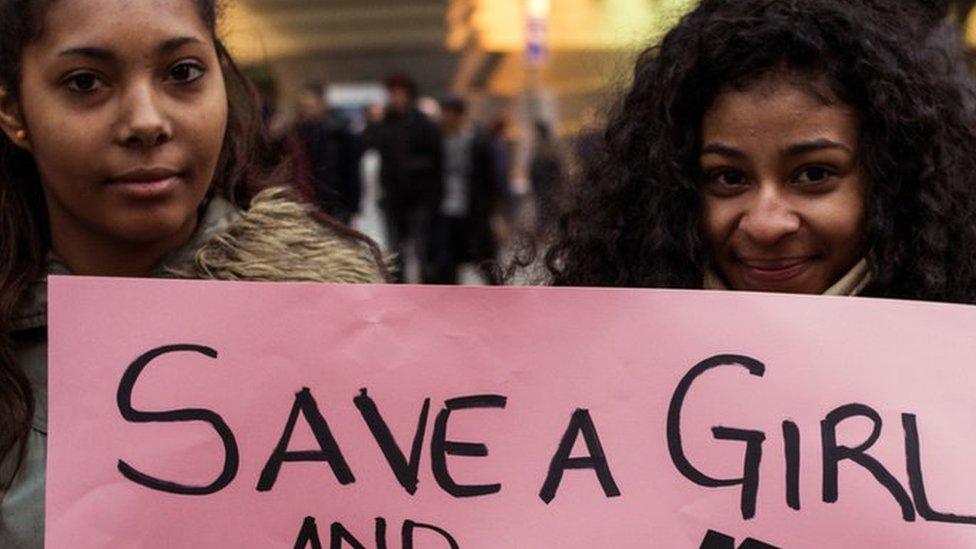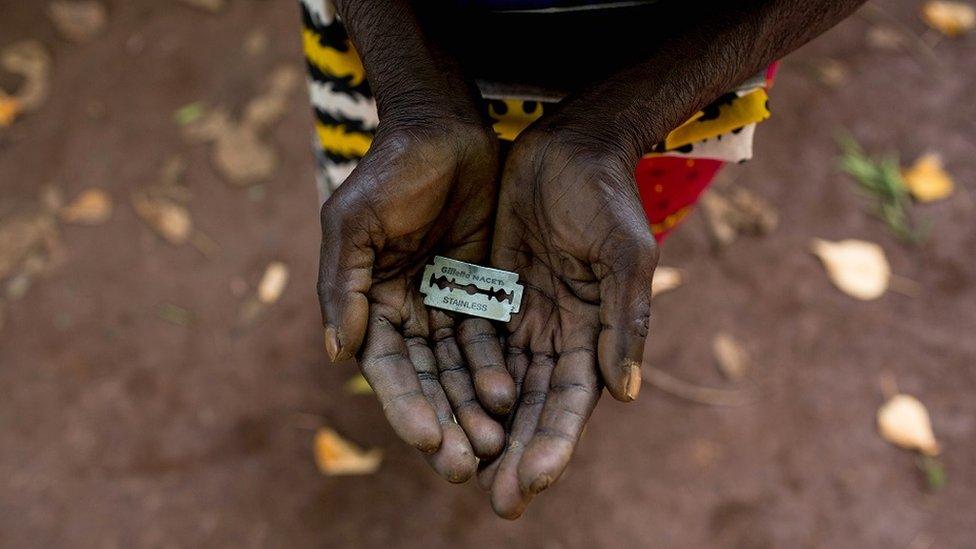Coronavirus: Concern as FGM reports fall during pandemic
- Published

Campaigner Sarian Kamara says many women are still too scared to come forward
It is feared victims of female genital mutilation in England are not reporting cases because of delays and lockdown closures, charities have told the BBC.
It comes as new figures revealed, external 635 new cases were recorded from July-September - a fall of more than a third compared with the same period in 2019.
The Home Office and NHS England said clinics remained open - but victims have reported treatment delays.
Campaigners fear the lower figures could lead to future funding cuts.
FGM is illegal in the UK and it is compulsory for family doctors, hospitals and mental health trusts to report any new cases in their patients.
The practice - intentionally altering or injuring the female external genitalia for non-medical reasons - carries a sentence of up to 14 years in prison.
Women in England over the age of 18 are directed to specialist FGM clinics to receive care. In 2019, the eight clinics were given funding for two years to provide specialised FGM services in London, Bristol, Leeds and Birmingham.
The Home Office and NHS England told the BBC that the clinics have remained open during the pandemic and provide virtual consultations to keep services operating.
But women say the Covid-19 pandemic has made it harder to access services. One, who needs a physical examination, told the BBC: "There is so much frustration. My name is on the waiting list to go and see the doctors at the clinic. But I can't [go]."
She says she is only comfortable visiting a specialist doctor, which is why she is reliant on the clinic seeing her.
Another woman, who has been supported by anti-FGM charity the Vavengers, was due to have a procedure in March, but it was delayed until October.
She was twice sent away from hospital because the defibulation operation was not deemed essential.
During the pandemic, the number of new women being recorded in the system has fallen to the lowest since records began in 2015 - 630 new cases in April-June and 635 in July-September.
Out of hiding
But experts say the number of women living with FGM is far higher than the official figures suggest.
"Many are asylum seekers or refugees and are scared they are going to be picked up if they go to hospital," says Sarian Kamara, an anti-FGM campaigner. "We are trying to get them out of hiding."
Charities say they are concerned that falls during the pandemic could also affect the future of the eight specialised FGM clinics. They were established on two-year contracts, funded by NHS England and the government. But beyond 2021, they will need to be commissioned by local authorities.
Janet Fyle, midwifery advisor at the Royal College of Midwives, said: "They are reporting what is reported to them - that doesn't mean we've got less women with FGM. At Imperial, 10% of pregnant woman annually have FGM. That's 600 out of 6,000 women."
However, Nimco Ali, FGM advisor to the government, said the recent NHS figures are a sign of the government's success.
"The reality is almost all women have now been asked the question [if they have been victims of FGM], now we have the data, so we should move towards providing provisions for the number of women rather than hyping it up as the same issue we had 10 years ago."
In a statement, the Home Office said it had recently awarded funding to "a number of charities working to support victims of so-called honour-based abuse, such as FGM, in order to address the challenges posed by the coronavirus pandemic".
- Published12 September 2019

- Published6 February 2019
